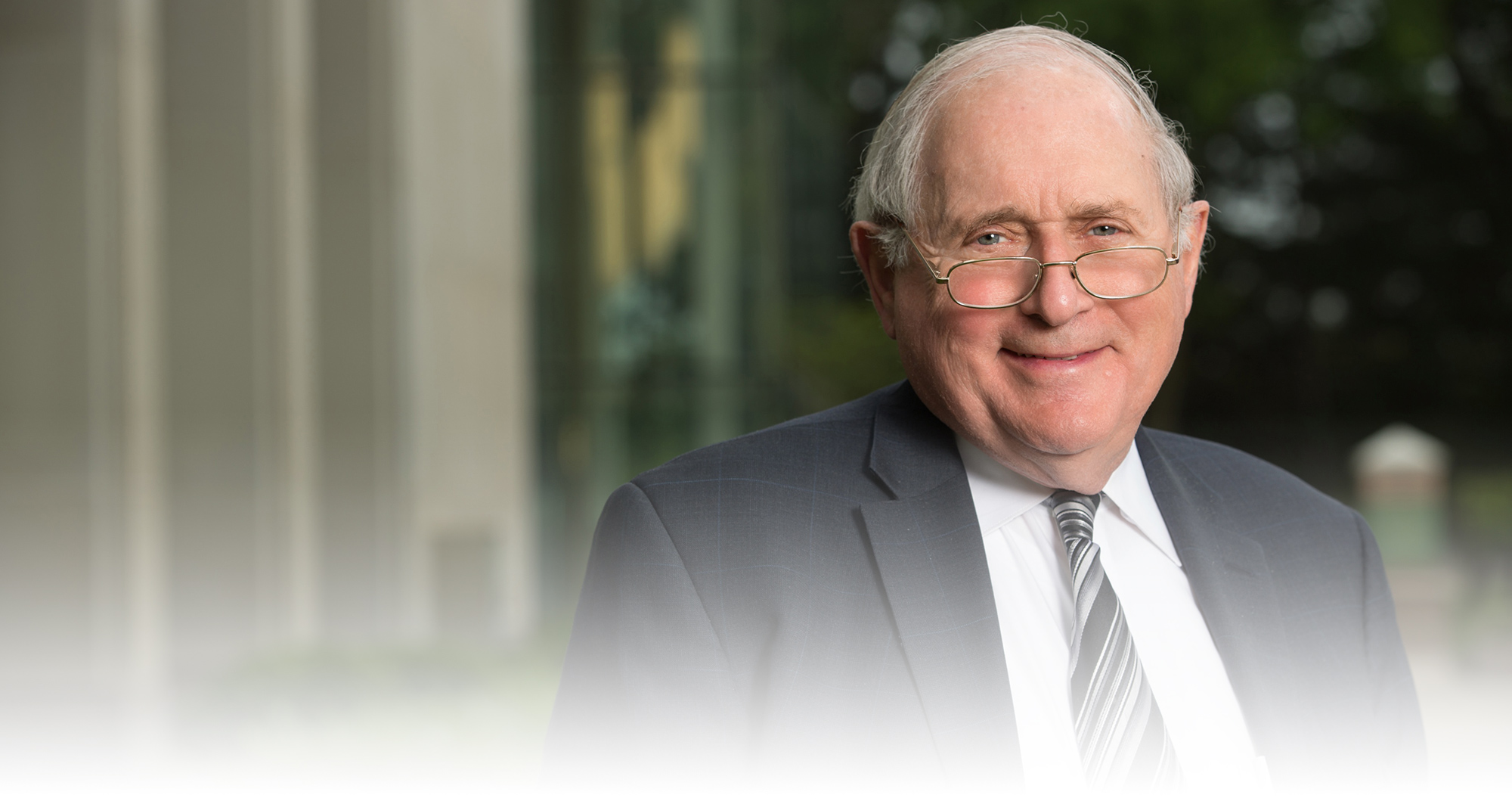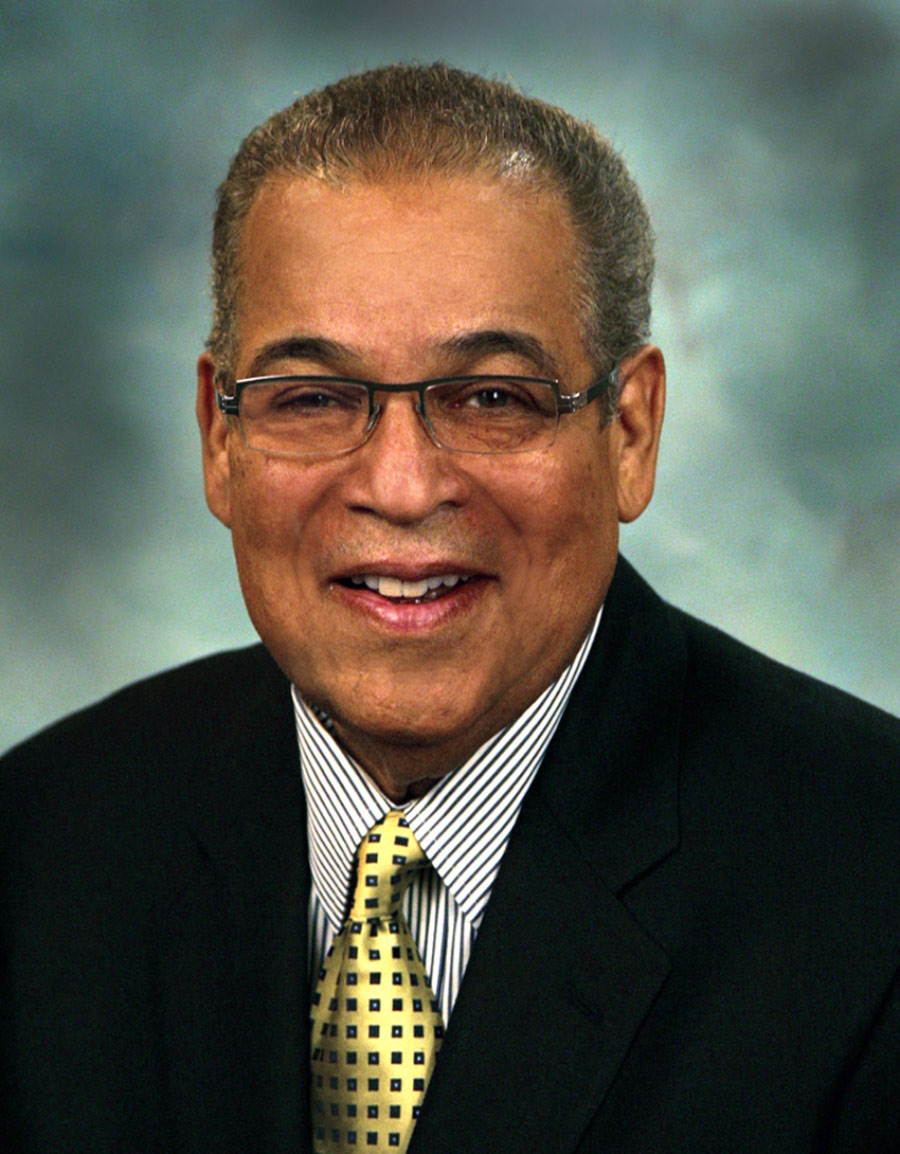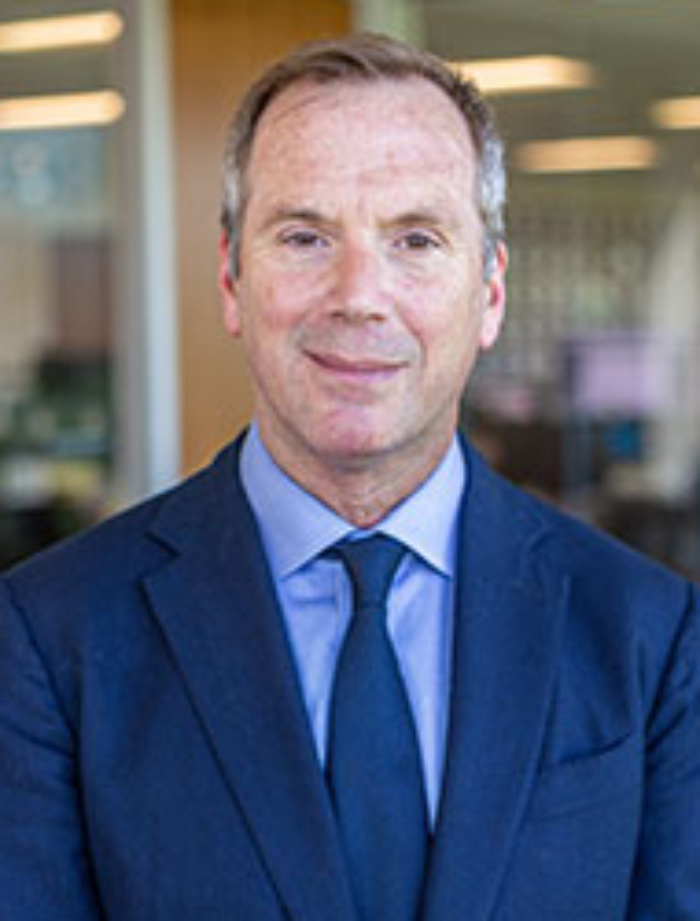Wayne Lawyer Fall 2021, Volume 36, No. 1

Fall 2021, Volume 36, No. 1

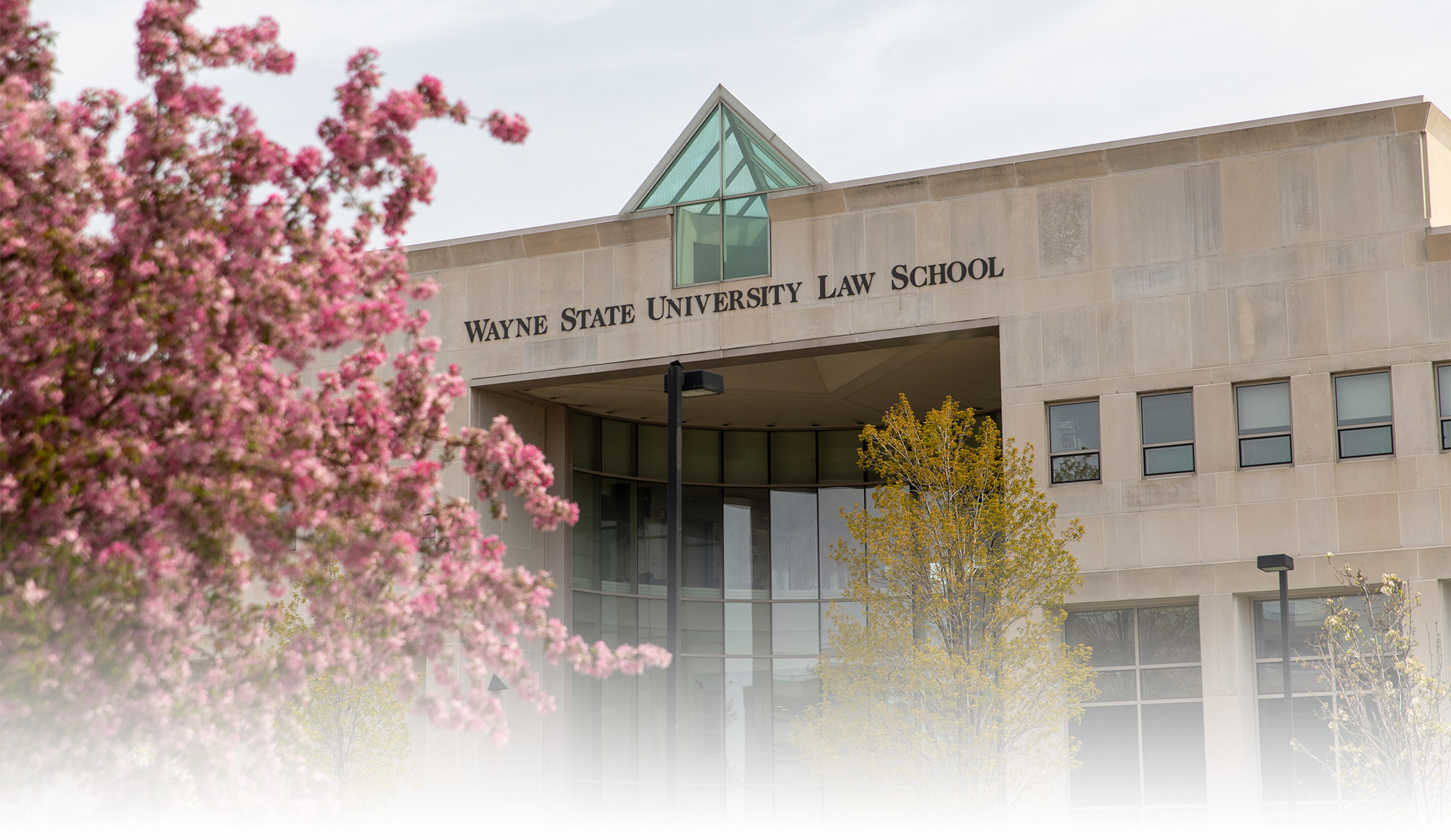

Candyce Ewing Abbatt ’83
C. David Bargamian ’90
Maurice S. Binkow
Richard Burstein ’69
Ina C. Cohen ’74
Dianna L. Collins ’98
Albert Dib ’80
Krishna S. Dighe ’87
Hon. Nancy G. Edmunds ’76
Hon. Edward Ewell Jr. ’85
Tyrone C. Fahner ’68
David J. Galbenski ’93
Hon. Elizabeth Gleicher ’79
Marcy Hahn ’98
David M. Hayes ’67
David M. Hempstead ’75
Paul W. Hines ’73
Kathryn J. Humphrey ’80
Shirley A. Kaigler, LL.M. ’93
Hon. Marilyn Kelly ’71
Thomas G. Kienbaum ’68
Lawrence C. Mann ’80
E. Powell Miller ’86
Kenneth F. Neuman ’86
Michael L. Pitt ’74
Miriam L. Siefer ’75
Steven G. Stancroff ’90
Adam B. Strauss ’98
Peter Sugar ’70
Vincent Wellman
I.W. Winsten ’79
Nathaniel R. Wolf ’97
M. Roy Wilson, president
Marilyn Kelly, chair
Mark Gaffney, vice chair
Bryan C. Barnhill II
Michael Busuito
Anil Kumar
Terri Lynn Land
Shirley Stancato
Dana Thompson
M. Roy Wilson, ex officio
This magazine is a publication of Wayne Law’s Marketing and Communications office.
Editors: Mary Hiller, Meg Mathis, Kaylee Place
Page designers: Matthew Balcer, Joseph Bowles
Photography: Jacob Lewkow Photography; United Photo Works
Wayne Lawyer
© 2021 Wayne State University Law School
lawcommunications@wayne.edu
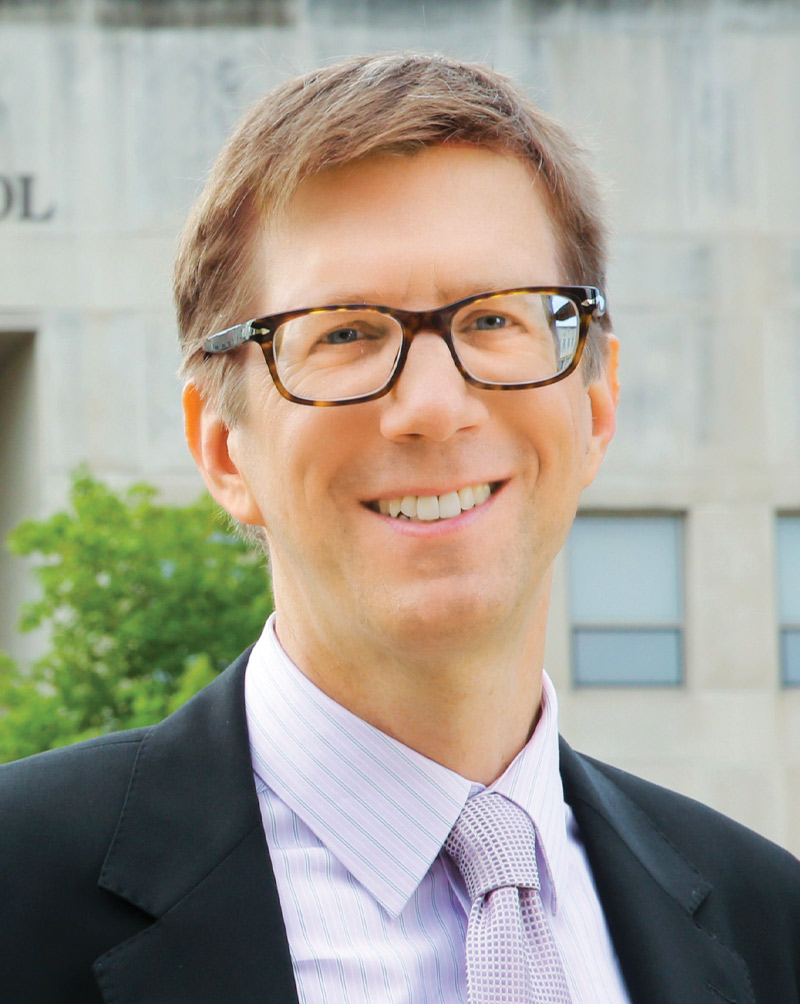
Alumni and friends,
As we settle into a new academic year, events continue to shine a spotlight on injustices that are ubiquitous in our society. The last year and a half has highlighted health disparities, racial and gender inequalities, and other fundamental structural and socioeconomic issues that have existed for generations.
Since Wayne State University Law School’s founding nearly 100 years ago, a core part of its mission has been to advance knowledge, policies and practices that seek to correct such ills and to enhance the well-being of all individuals. Through population health research and advocacy initiatives, our faculty and students are working to change the structures that contribute to health disparities, knowing that doing so can go far to protect and empower marginalized groups by preventing inequities and illness from taking root. Read the cover story, “Broad strokes,” beginning on page 16.
Wayne Law faculty members also are reshaping the narrative around another longstanding social ill that intersects with issues of race and citizenship: that of gender-based violence. Learn more in “Shifting the paradigm,” which begins on page 22.
■ Commencement
Strike A Pose

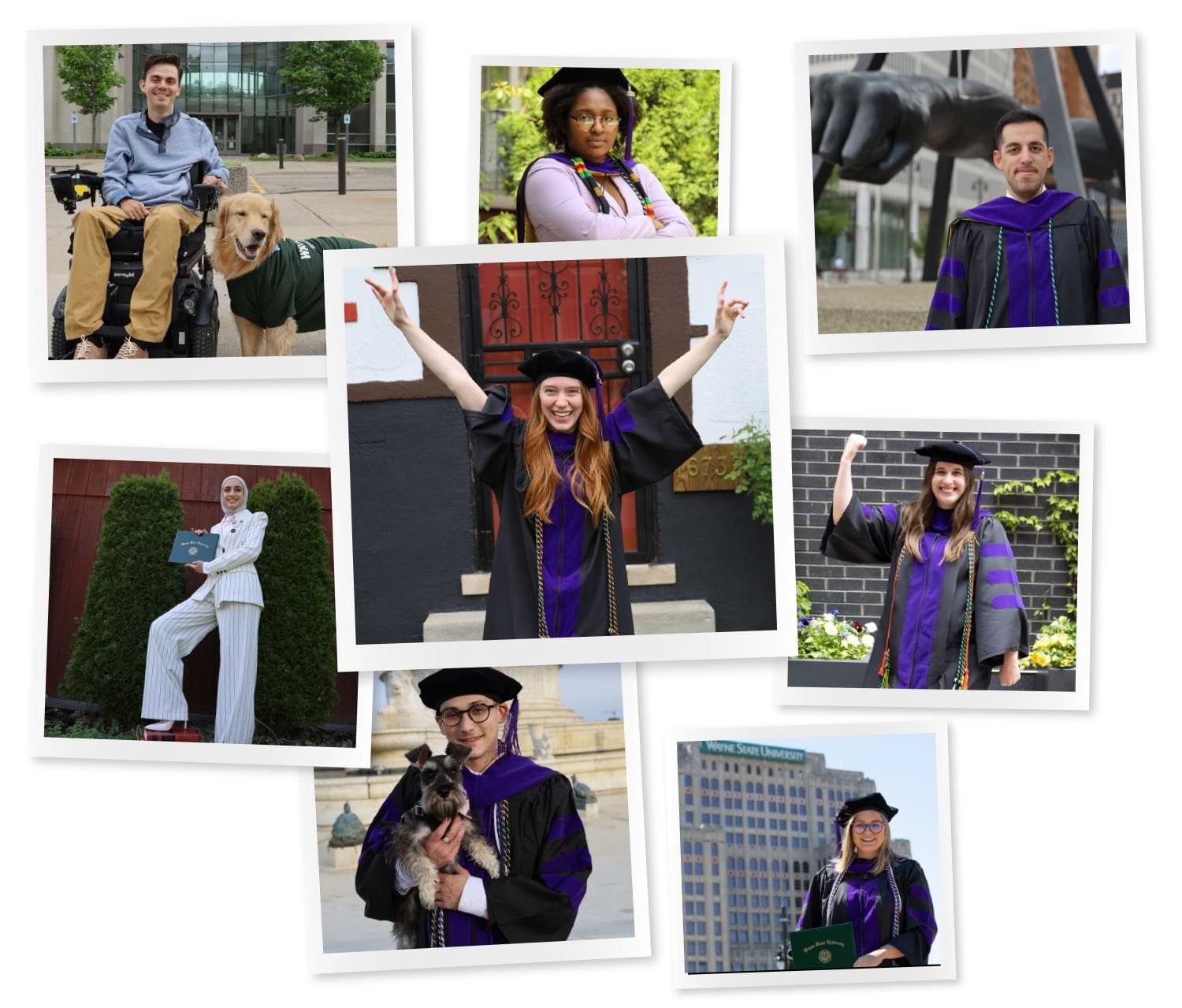
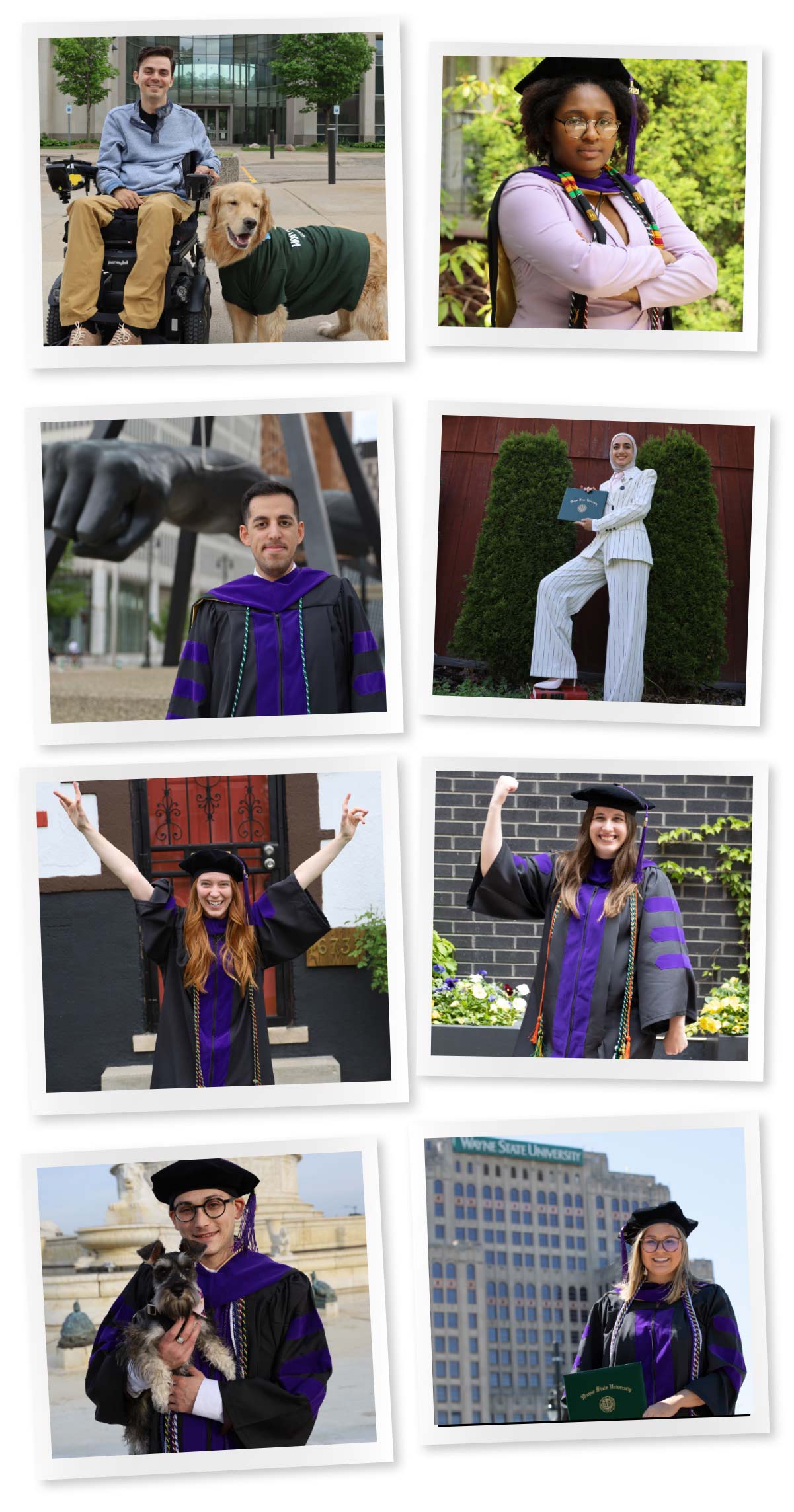

Due to the ongoing pandemic, Wayne Law’s 2021 commencement ceremony was held virtually. Kathleen Wilson-Thompson J.D. ’82, LL.M. ’96, former executive vice president and global chief human resources officer of Walgreens Boots Alliance, delivered the keynote address. Following the ceremony, the Law School hosted a virtual toast for graduates and their loved ones, faculty and staff. Each graduate was presented with a custom Wayne Law Champagne flute to enjoy their beverage of choice.
Since graduates missed the chance for pictures in their caps and gowns at the Detroit Opera House, the Law School sent a photographer to them for a physically distanced photo shoot!
■ Student engagement
The law is alive
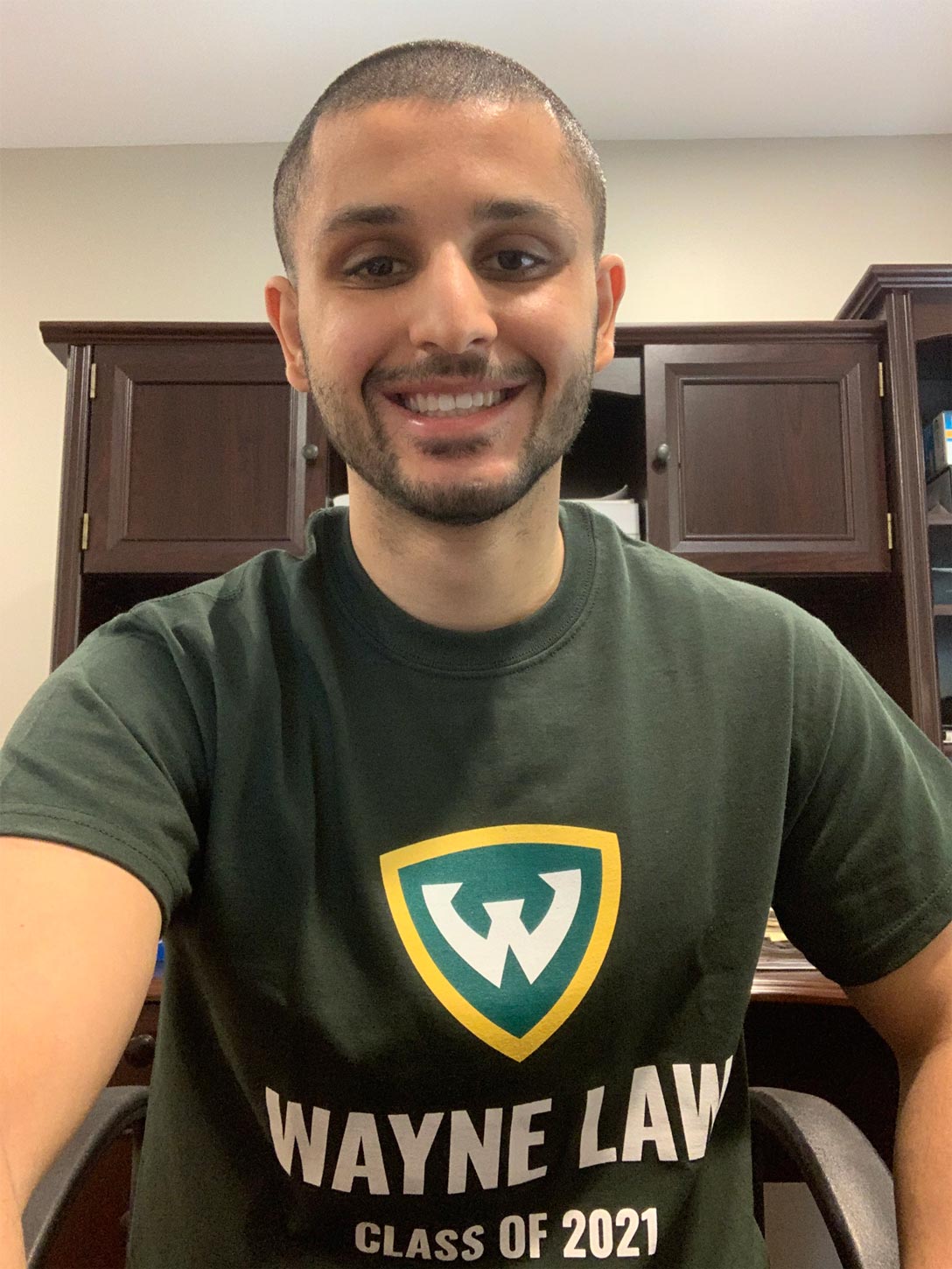
“I take pride in the work I performed during my externship at Michigan Community Resources, which included assisting with the development of legal resources for small businesses negatively impacted by COVID-19.”
— Boulos Saba ’21

“I take pride in the work I performed during my externship at Michigan Community Resources, which included assisting with the development of legal resources for small businesses negatively impacted by COVID-19.”
— Boulos Saba ’21
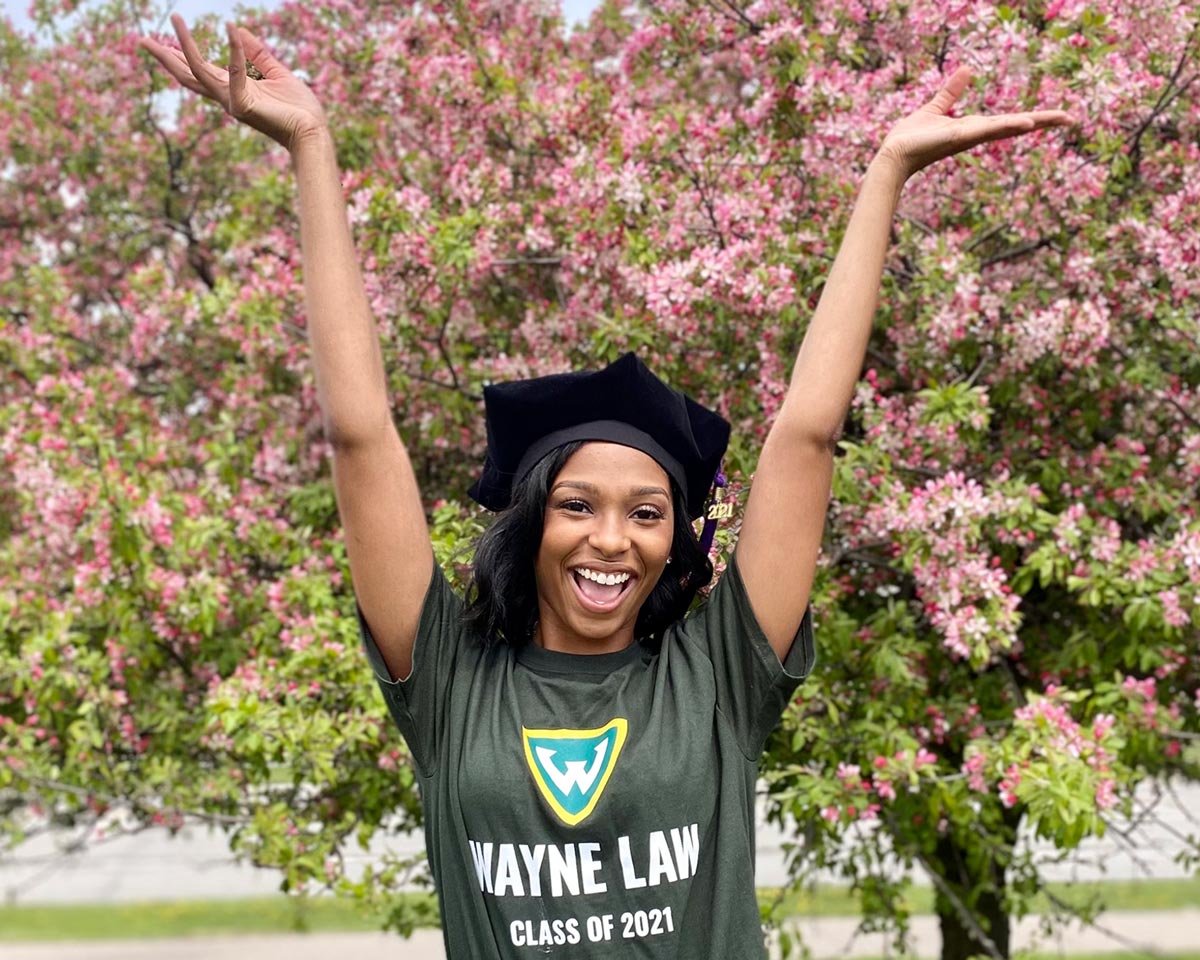
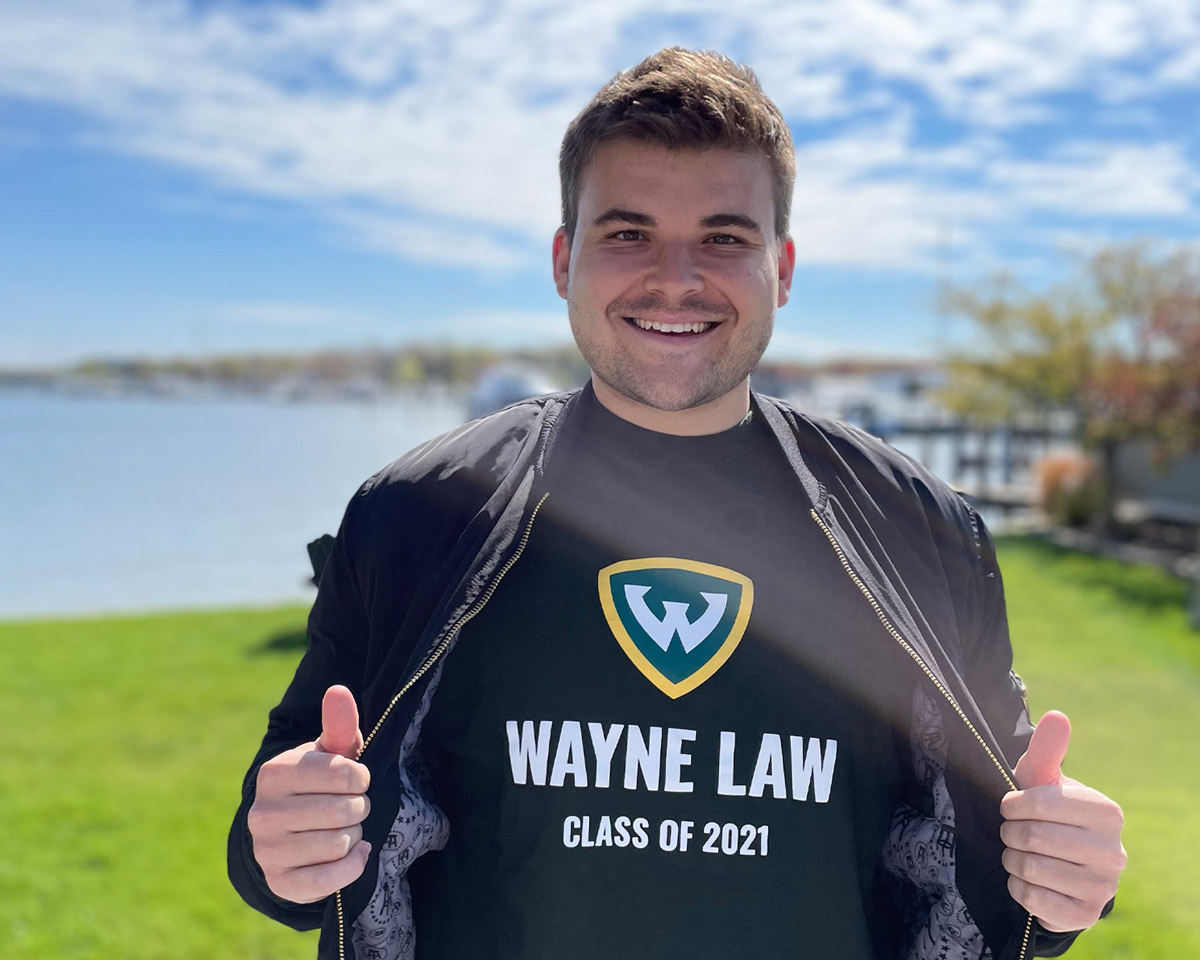
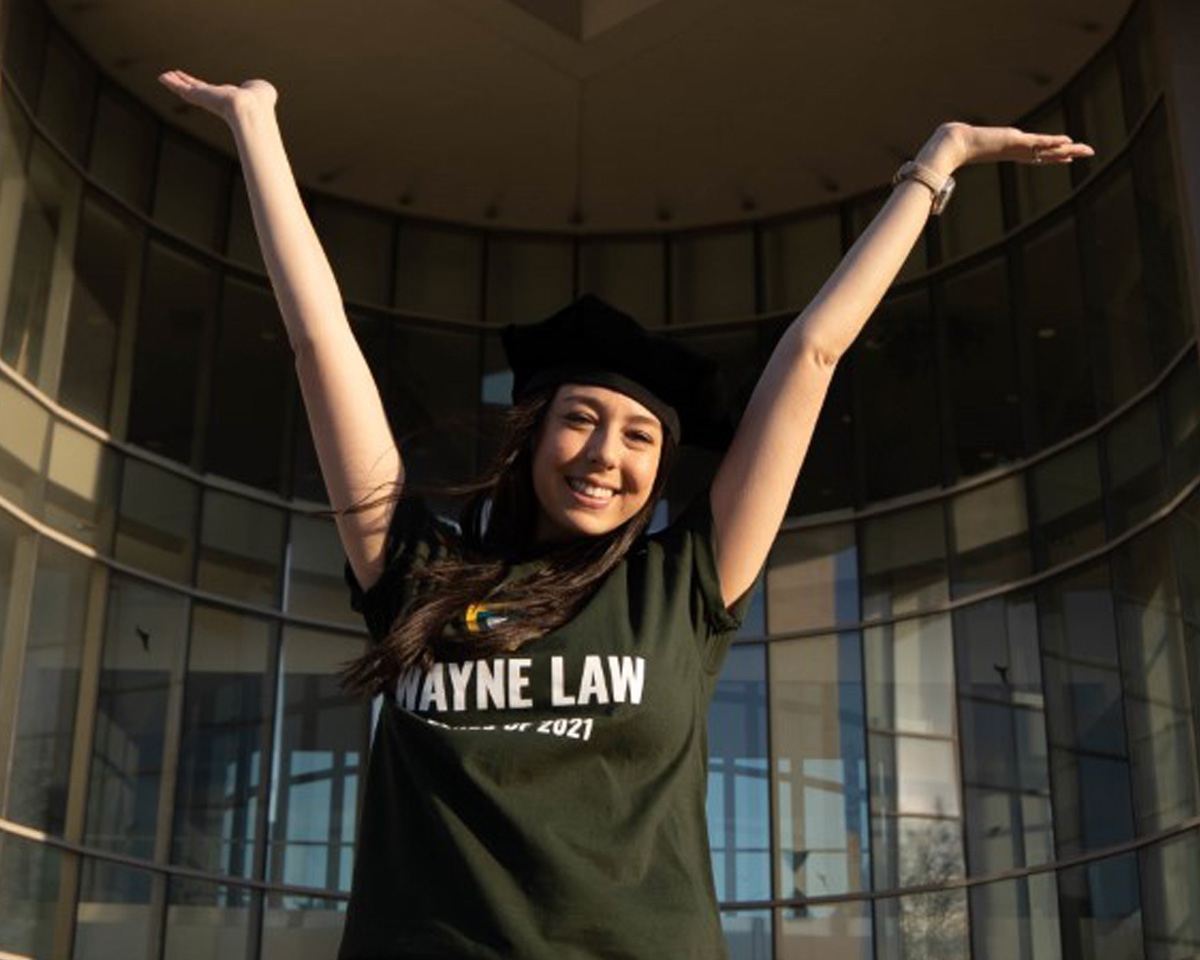
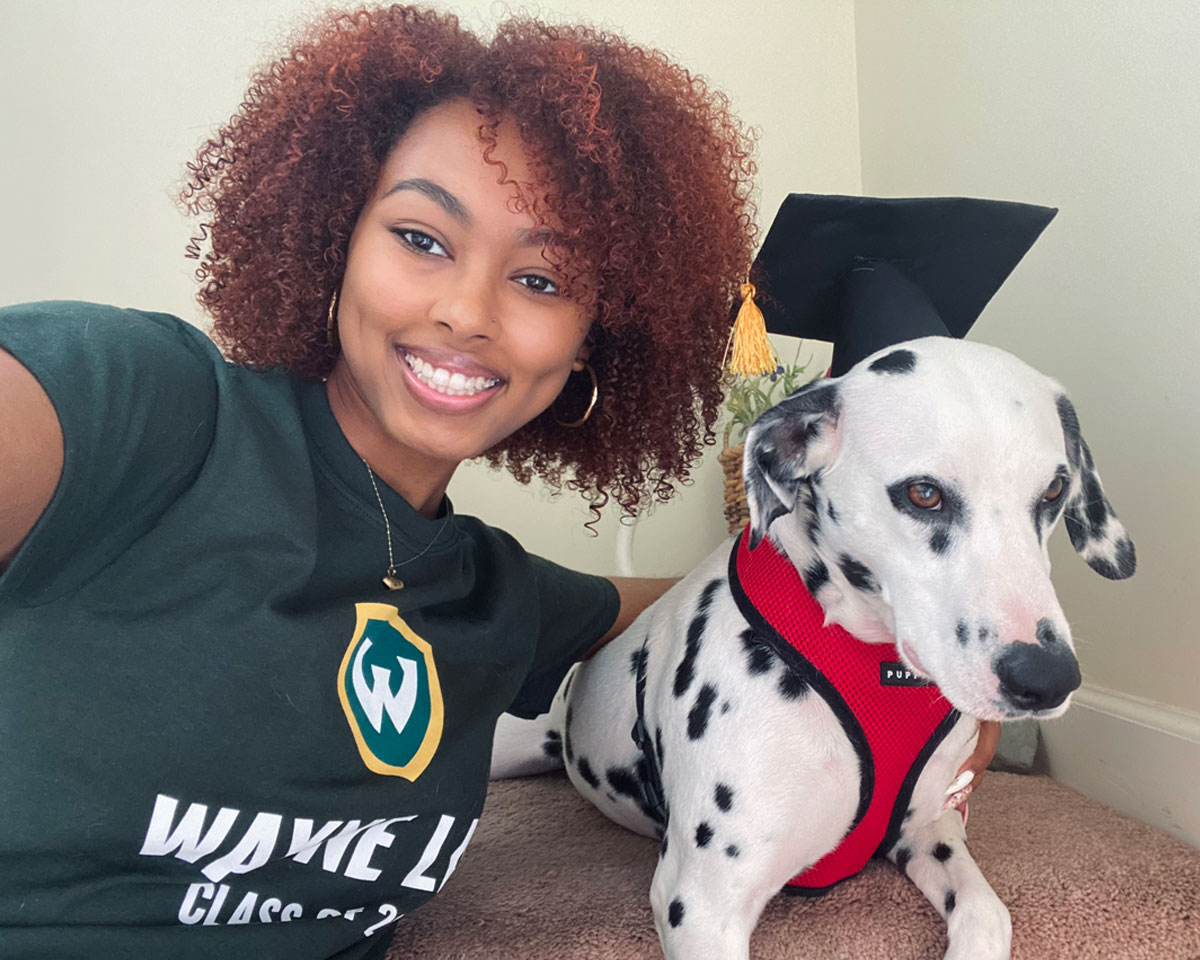




Doctor of paws
Hoping to bring some levity after a uniquely challenging year, Pet Graduation was designed to highlight the role animals play in emotional well-being and celebrate how pets have gotten many of us through the pandemic. During the event, students and members of the faculty and administration read the name of each pet graduate, as well as their favorite things about “Zoom School of Law” and their future ambitions. Many animals donned regalia or special bandanas for the occasion.
Pet graduates belong to members of the Wayne Law community and include dogs, cats, guinea pigs and a snake — plus several pets who have crossed the Rainbow Bridge.
At print time, many pets were preparing for the bark exam and plan to become a law firm pawtner.
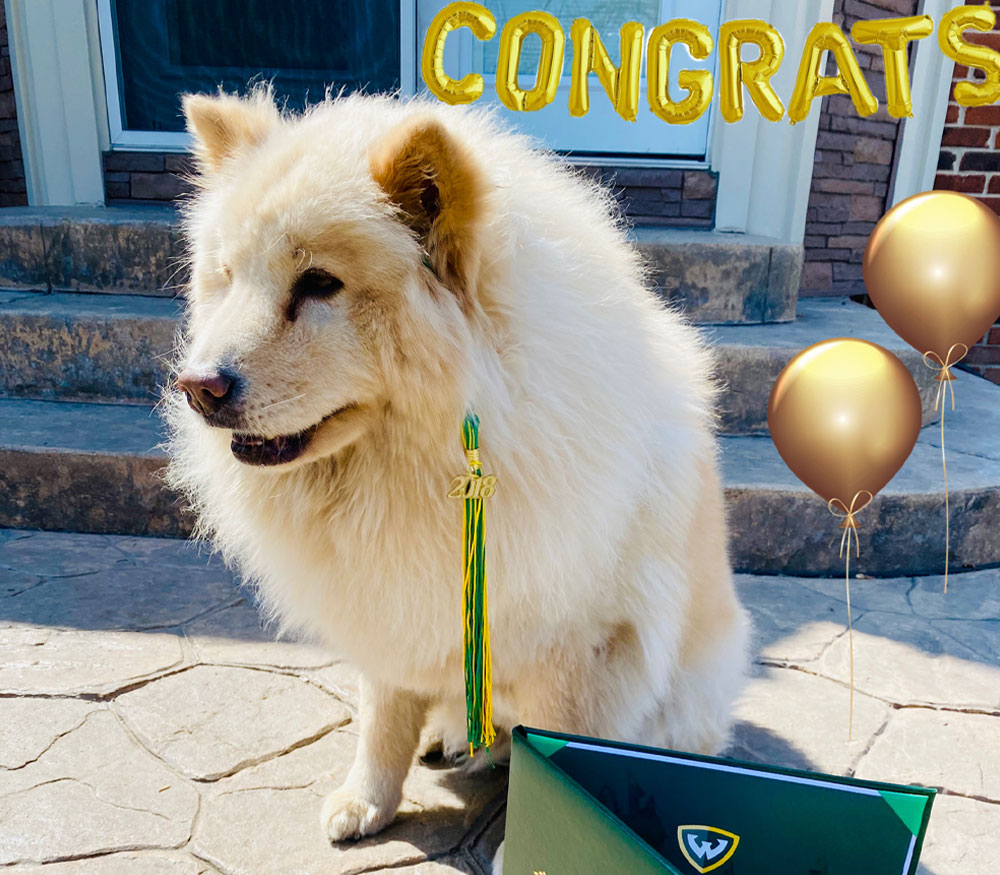

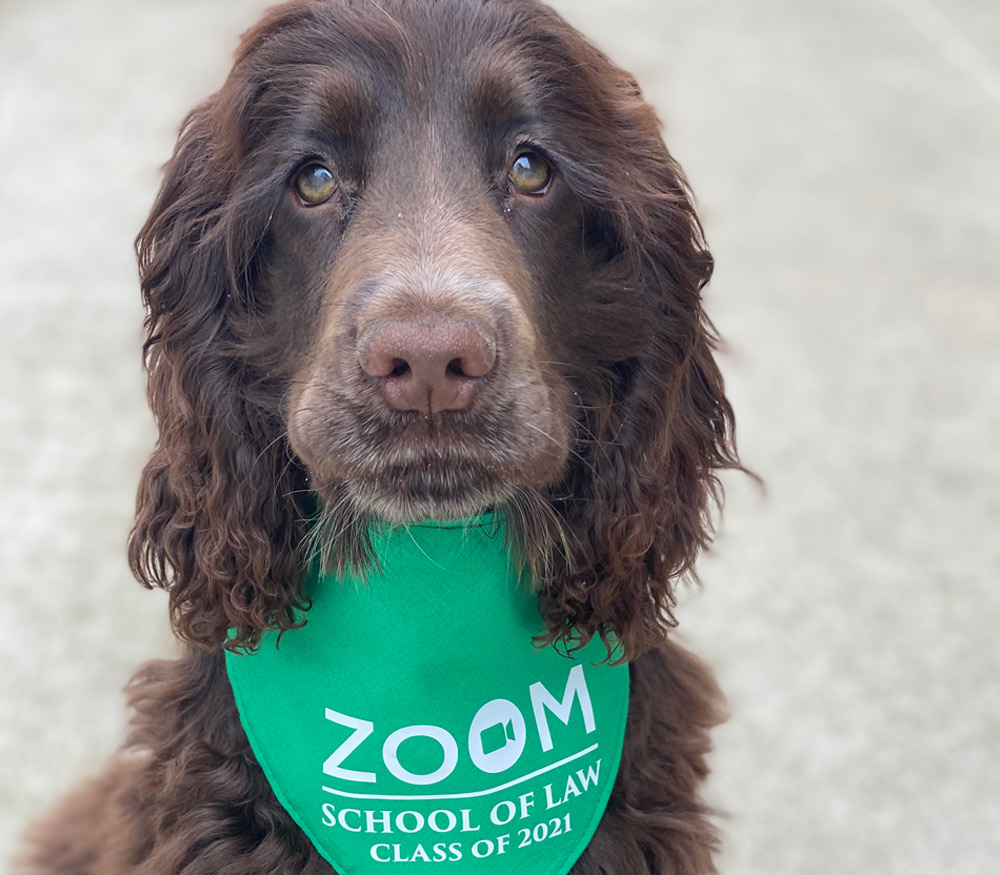
Rising in the ranks
Wayne Law is Detroit’s only public law school and consistently has the lowest tuition in Michigan. The Law School is No. 47 in the country for placing recent graduates in full-time, long-term jobs that require bar passage or for which a J.D. is an advantage, according to an analysis of the American Bar Association’s 2020 employment data.* The National Jurist and preLaw magazines have ranked Wayne Law a Best Value Law School for seven consecutive years.
■ EXPERIENTIAL LEARNING

Lawyering
in D.C.
The externship is a partnership between the Law School’s experiential learning program, Damon J. Keith Center for Civil Rights and Levin Center. The winter semester initiative offers up to four students the opportunity to work — under the supervision of a licensed attorney — in a variety of settings depending on their area of interest. Students interested in the legislative process and congressional oversight may work on Capitol Hill in a House or Senate office. Students interested in civil rights and social justice may work with a nonprofit agency engaged in policy work.
■ Damon J. Keith Center for Civil Rights
DEAL 6
Wayne Law racial equity initiative launches sixth cohort
“I am thrilled to welcome DEAL 6 into our network of diverse and dynamic leaders,” said DEAL Director Asandi Conner. “We are applying what we learned in 2020 to increase their capacity and further advance racial equity in our beloved city.”
Since its inception in 2014, DEAL’s Racial Equity Fellowship program has brought together nearly 200 leaders working in the many dimensions of racial equity — including arts and media, community development, education, environment, food security, health care, and housing — to address issues of structural racism in Detroit and beyond.
■ MOOT COURT
Making waves
Grenfell was awarded the seventh-best oralist in the world, and the respondent team of Grenfell and Stropes placed 15th overall.
The Jessup Competition is the world’s oldest and largest moot court competition. The Global Rounds began with 550 teams from 90 countries. Competitors receive a problem each fall that simulates a case before the International Court of Justice (World Court) between two countries.
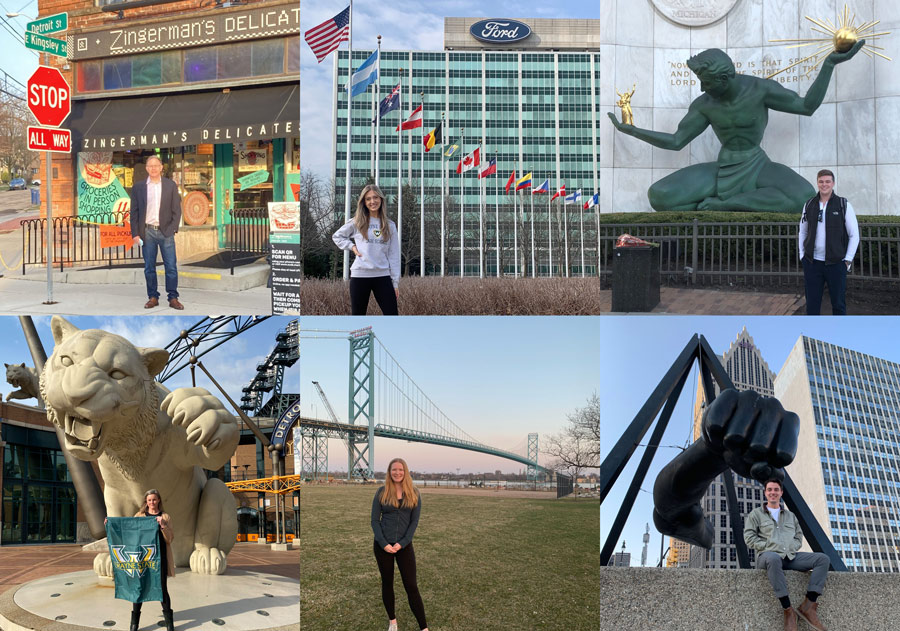
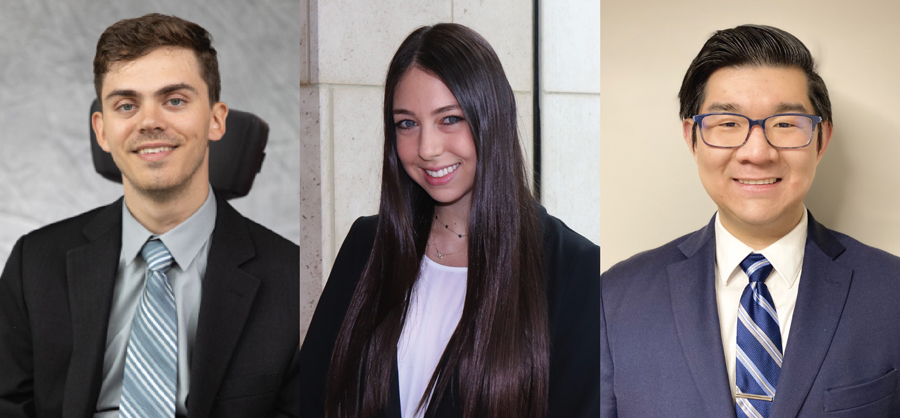
One of the most prestigious moot court competitions in the country, the ABA’s National Appellate Advocacy Competition emphasizes the development of oral advocacy skills through a realistic appellate advocacy experience.
One of the most prestigious moot court competitions in the country, the ABA’s National Appellate Advocacy Competition emphasizes the development of oral advocacy skills through a realistic appellate advocacy experience.

■ Scholarships, fellowships and awards
Congrats, Warriors!
Marcela Darris, Rural Summer Legal Corps Fellowship
Jewish Bar Association of Michigan
Jessica Davidova, Charles J. Cohen Scholarship
Peggy Browning Fund
Brandon Wright, Summer Fellowship, United Auto Workers International Union Legal Department
Ralph M. Freeman Foundation
Taylor Janssen ‘21, Law School Scholarship
Taxation Section of the State Bar of Michigan
Kelsey Postema ‘21, Student Achievement Award
Marie Carp, Washington State Office of the Attorney General (Olympia, Washington)
Nyeema Haigler, Brave Justice Program (Queens, New York)
Sarah Khan, Neighborhood Defender Service of Detroit
Samantha Mackereth, Macomb County Prosecutor’s Office
Andrew Nurmi, Legal Services of Eastern Michigan
McKenna Thayer, Neighborhood Defender Service of Detroit
Michael Yaldo, Washtenaw County Office of Public Defender
Wolverine Bar Foundation
Mikaela Armstead, Victoria A. Roberts Scholarship
Eberechi Ogbuaku, Damon J. Keith Scholarship
Women Lawyers Association of Michigan Foundation
Aleanna Siacon, Dawn Van Hoek Scholarship
Nichole Van Blaricum, Dobrusin Law Scholarship
■ Building a Legacy
A
lasting
influence
“It’s a privilege to honor Professor Littlejohn after all these years,” said Fred Harring ’97, who created the endowment. “His teaching and example had an immediate impact on me and so many others, and his influence resonates to this day.”
One of the nation’s foremost experts on African American legal history, Littlejohn played an instrumental role in the implementation of the Detroit Police Commission. In 1993, he established the Damon J. Keith Collection of African American Legal History, the country’s first and only archive dedicated to the perpetual care of the papers, artifacts and memorabilia of African American legal history.
Littlejohn graduated second in his class from the Detroit College of Law in 1970, after receiving an array of scholarships and awards. The college made him a member of its faculty immediately upon graduation — an appointment seldom made within the field of American legal education. Two years later, he joined the Wayne Law faculty as associate dean and served as a professor until 1996. Littlejohn also attended the graduate law program at Columbia University, earning his LL.M. in 1974, and his J.S.D. — the highest degree awarded in legal education — in 1982.
Broad Strokes


s director of Wayne State University Law School’s Legal Advocacy for People with Cancer (LAPC) Clinic, Kathryn Smolinski ’11 is fluent in the area of population health law.
“When you think about populations, individuals diagnosed with cancer is a population,” she said. “The number of cancer survivors and those affected by cancer — their caregivers, family members — is a huge population.”
Indeed, population health paints health status and outcomes in broader strokes, focusing less on the individual and more on those who fall within a particular group or category. Throughout COVID-19, population health has played a vital role in identifying who is most at risk.
And, as cancer rights attorney Joanna Fawzy Morales observes, the legal issues that the cancer community faced in previous years — access to care, health insurance, employment, etc. — are all the more urgent during a pandemic.
![]() Addressing Gender-Based Violence
Addressing Gender-Based Violence
Shifting the Paradigm
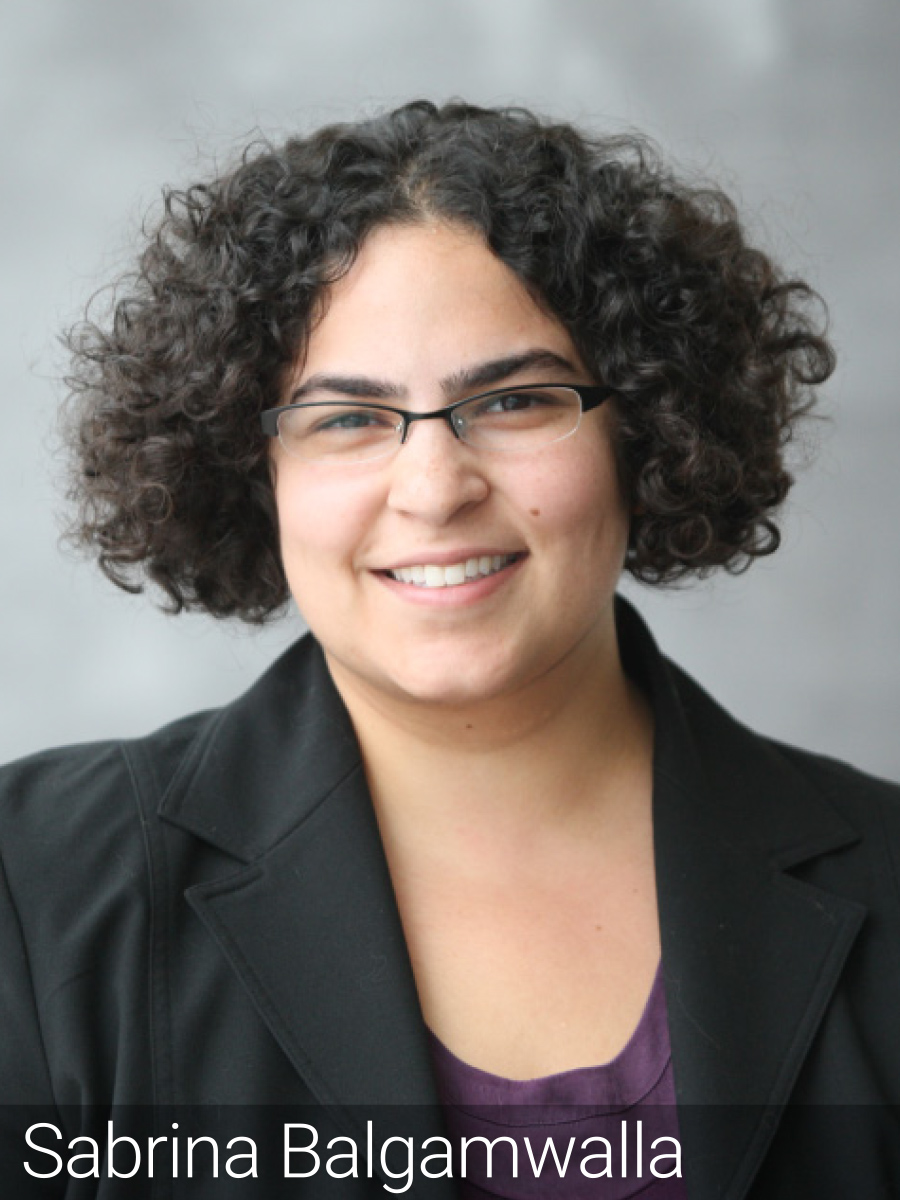
2021-22
Gershenson Faculty
Workshop Series
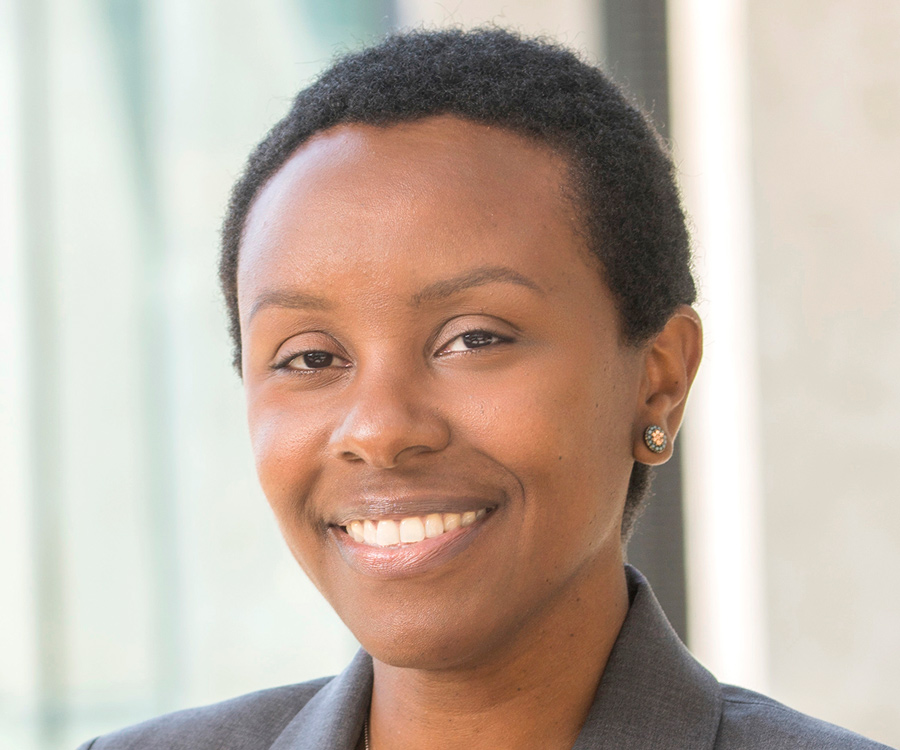
University of California, Berkeley
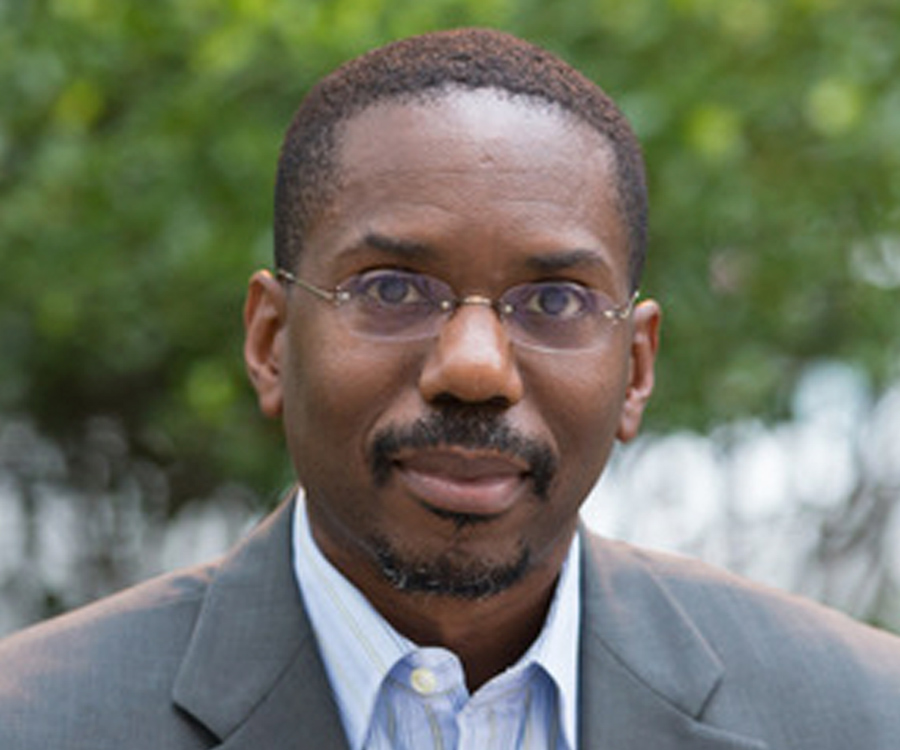
Fordham University
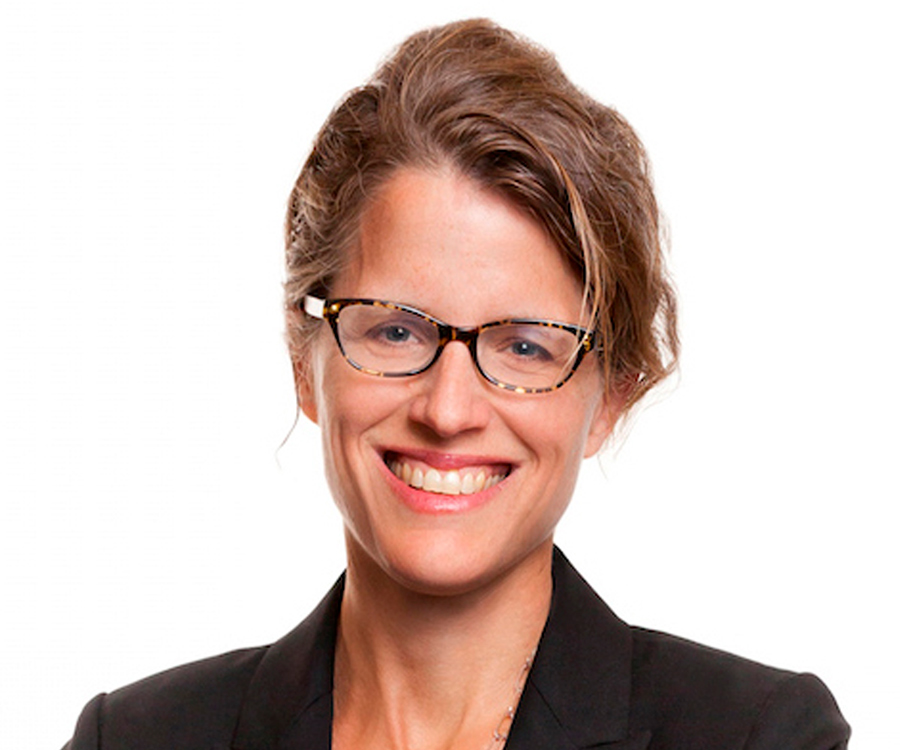
Boston University
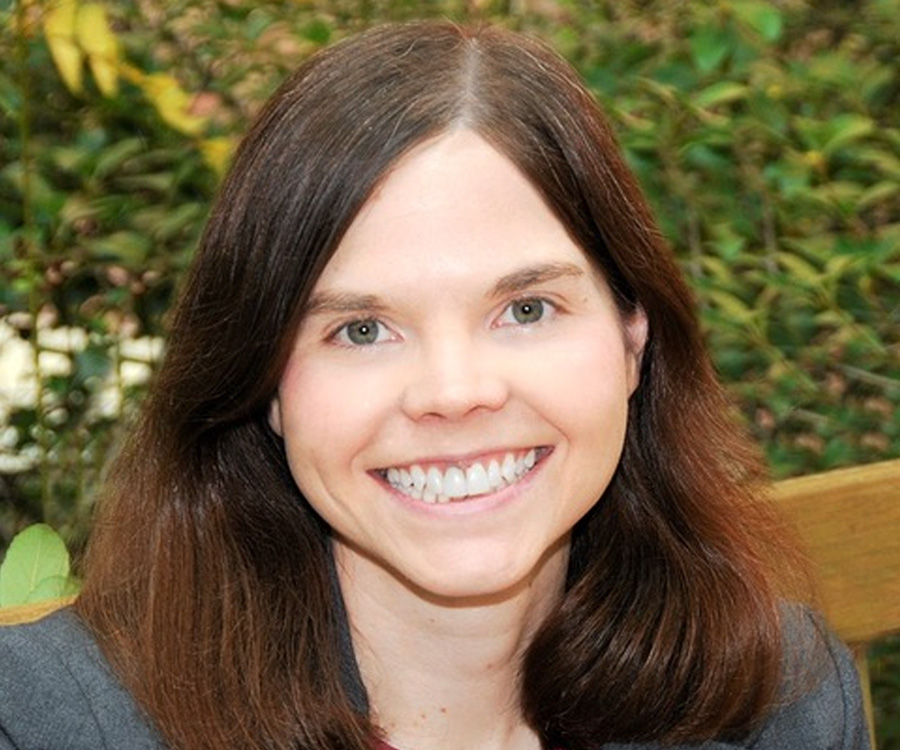
University of Alabama
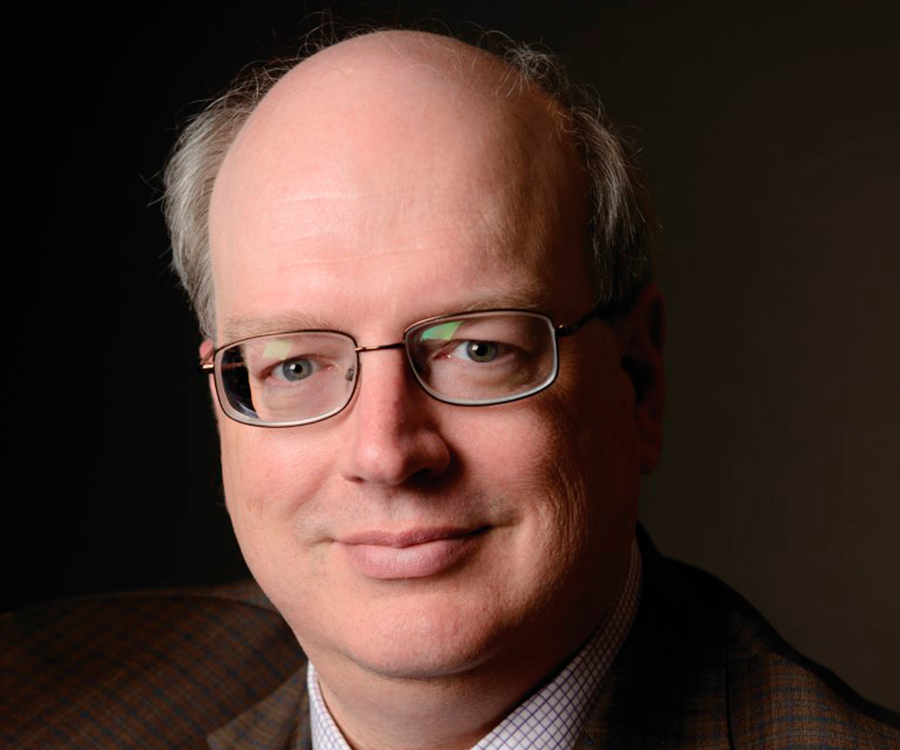
University of Alabama
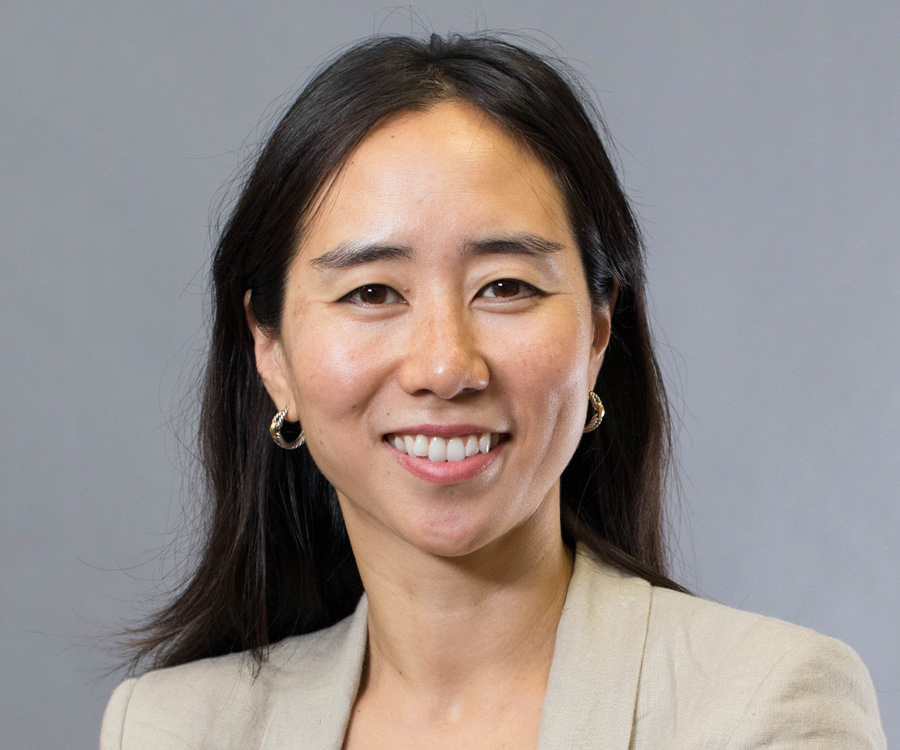
Georgetown University
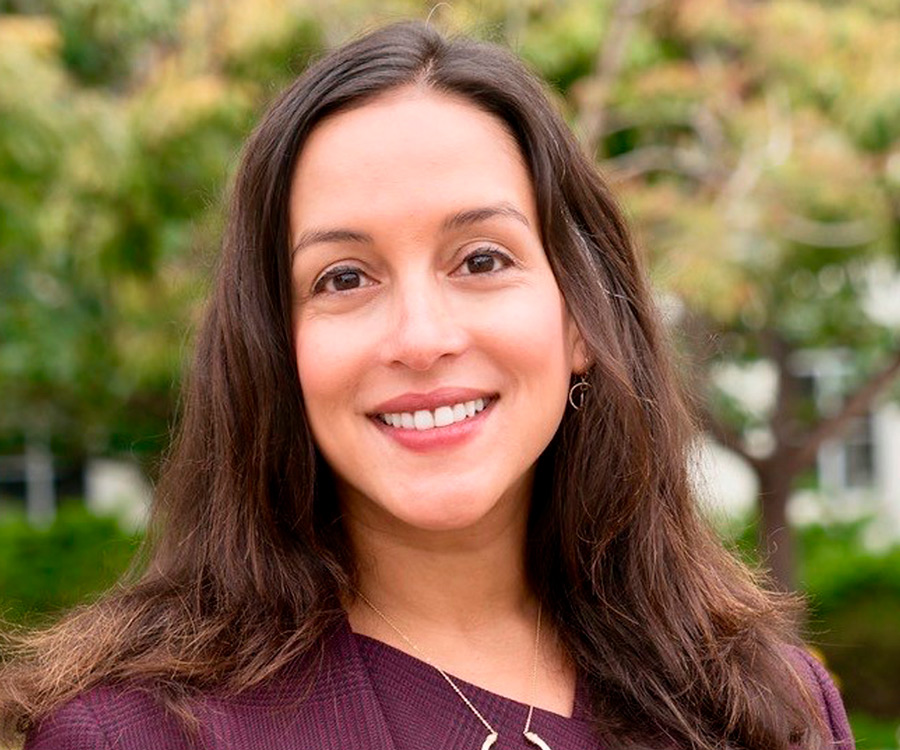
University of San Diego
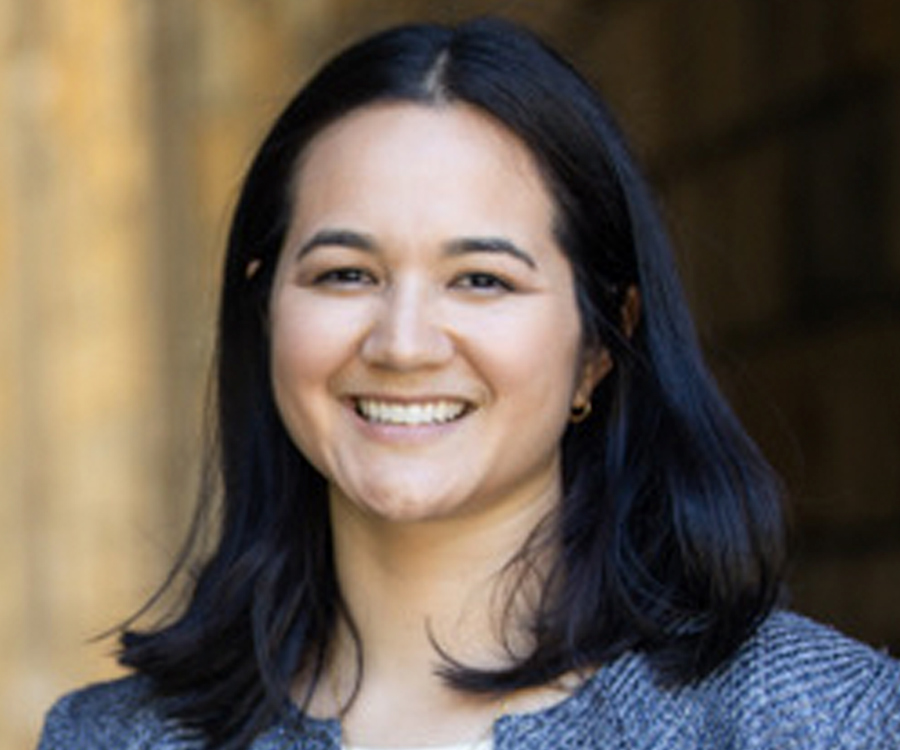
University of Michigan

University of California, Berkeley

Fordham University

Boston University

University of Alabama

University of Alabama

Georgetown University

University of San Diego

University of Michigan

New faculty
Nancy Chi Cantalupo, Daniel Ellman, Jamila Jefferson-Jones and Hillel Nadler.
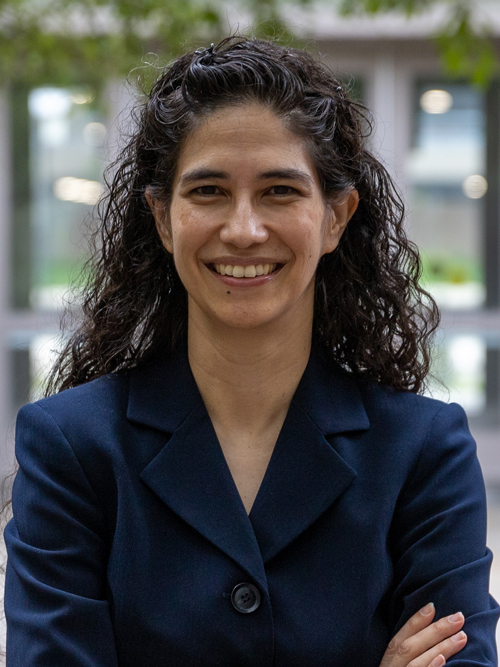
Assistant Professor of Law
Featured faculty
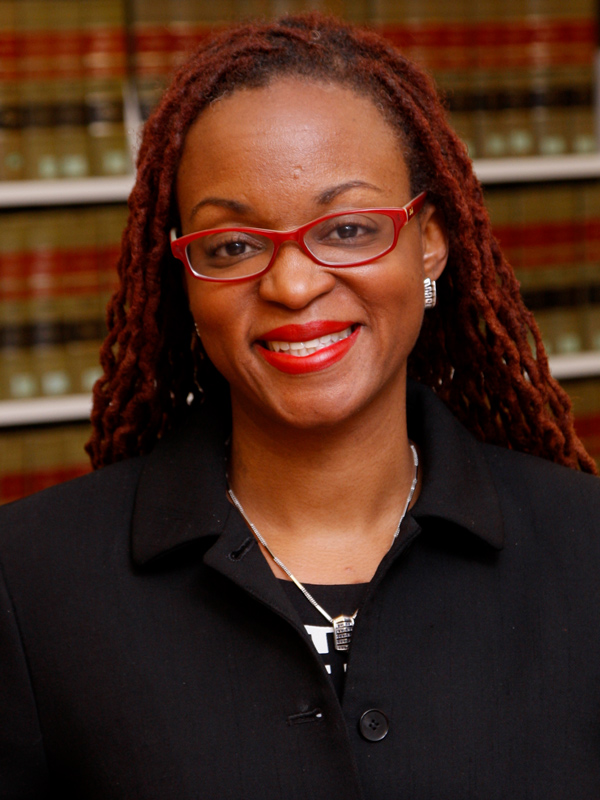
Professor of Law
Associate Director of Property, Equity and Justice, Damon J. Keith Center for Civil Rights
- From #LivingWhileBlack: Blackness as Nuisance
American University Law Review (2020) (with Taja-Nia Y. Henderson)
Faculty achievements
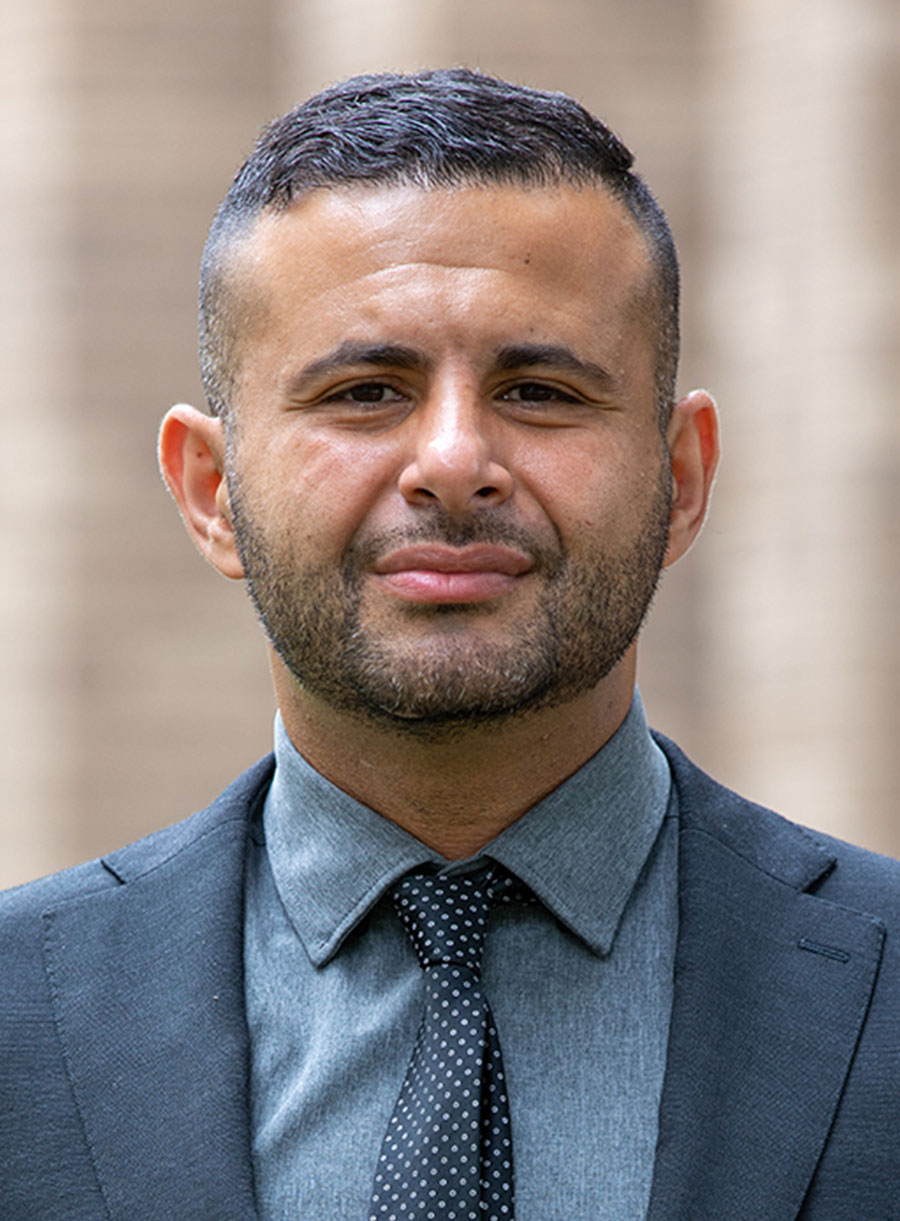
Associate Professor of Law
Associate Director of Civil Rights and Social Justice, Damon J. Keith Center for Civil Rights
Awarded a Career Development Chair
This award will support Beydoun’s work on a new book, tentatively titled The New Crusade: Islamophobia and the Global War on Muslims. Beydoun is a critical race theorist and an internationally acclaimed expert in national security, the War on Terror and civil rights. His scholarship investigates modern modes of policing and its impact on Arab and Muslim communities. His most recent paper, On Sacred Land, appeared this year in the Minnesota Law Review.
Class Notes
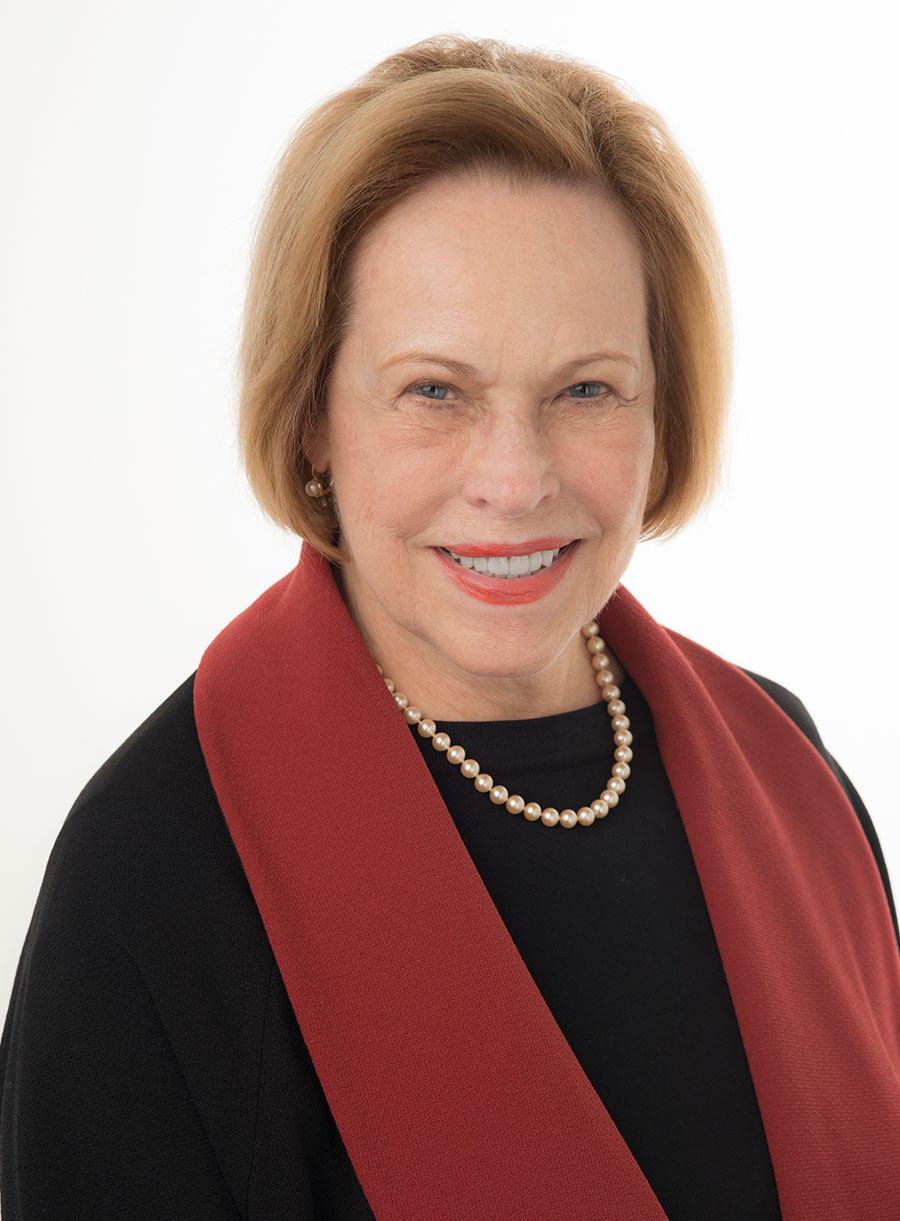
Marilyn Kelly ’71 was unanimously reappointed as chair of the Wayne State University Board of Governors by its members.
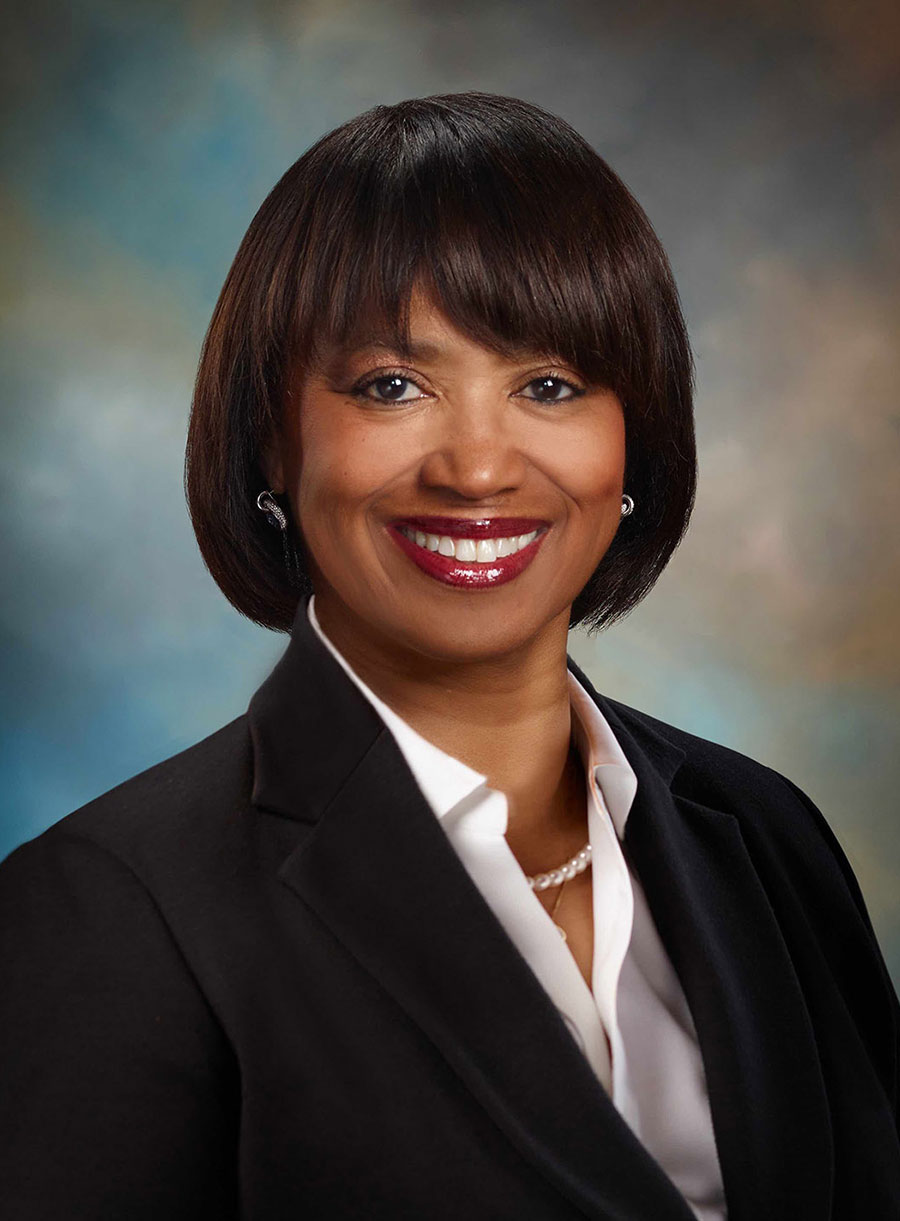
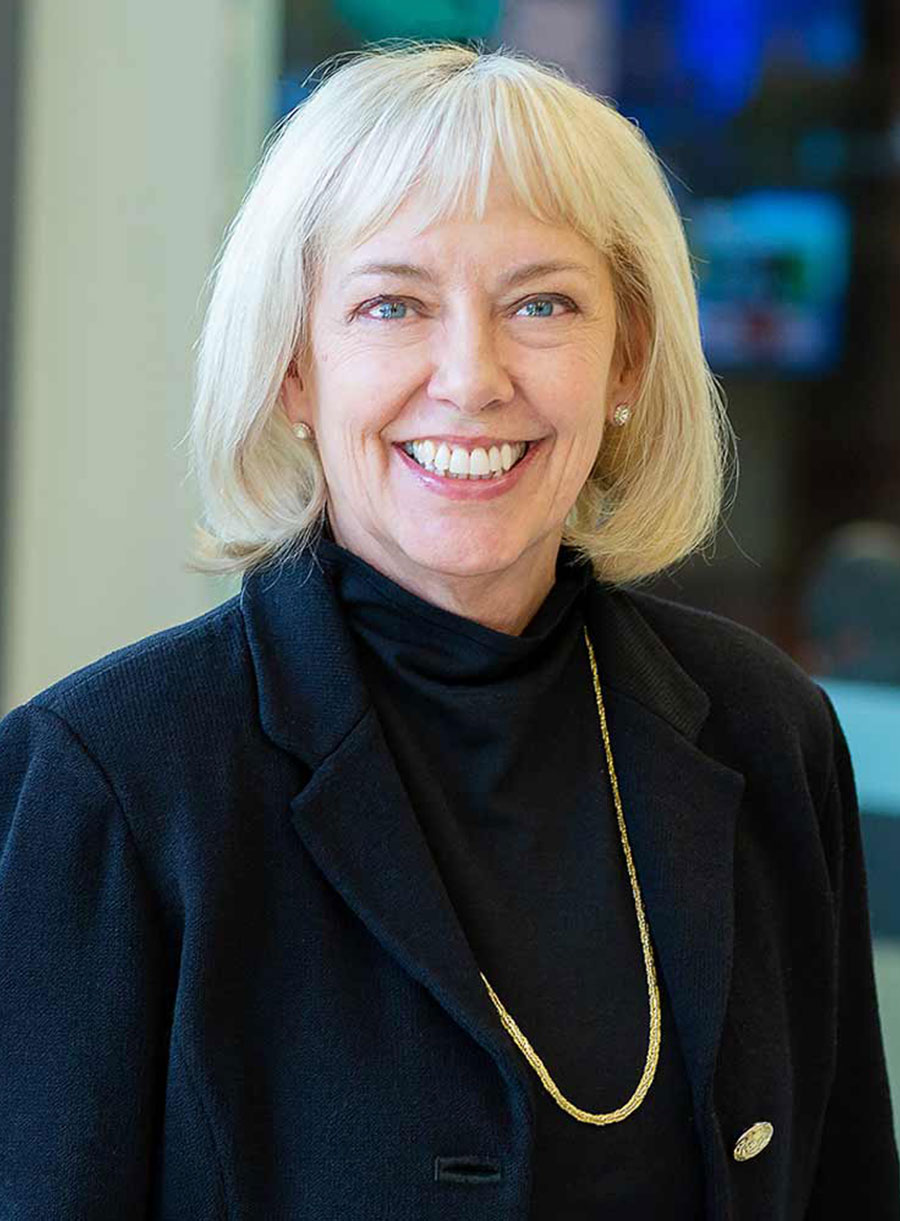
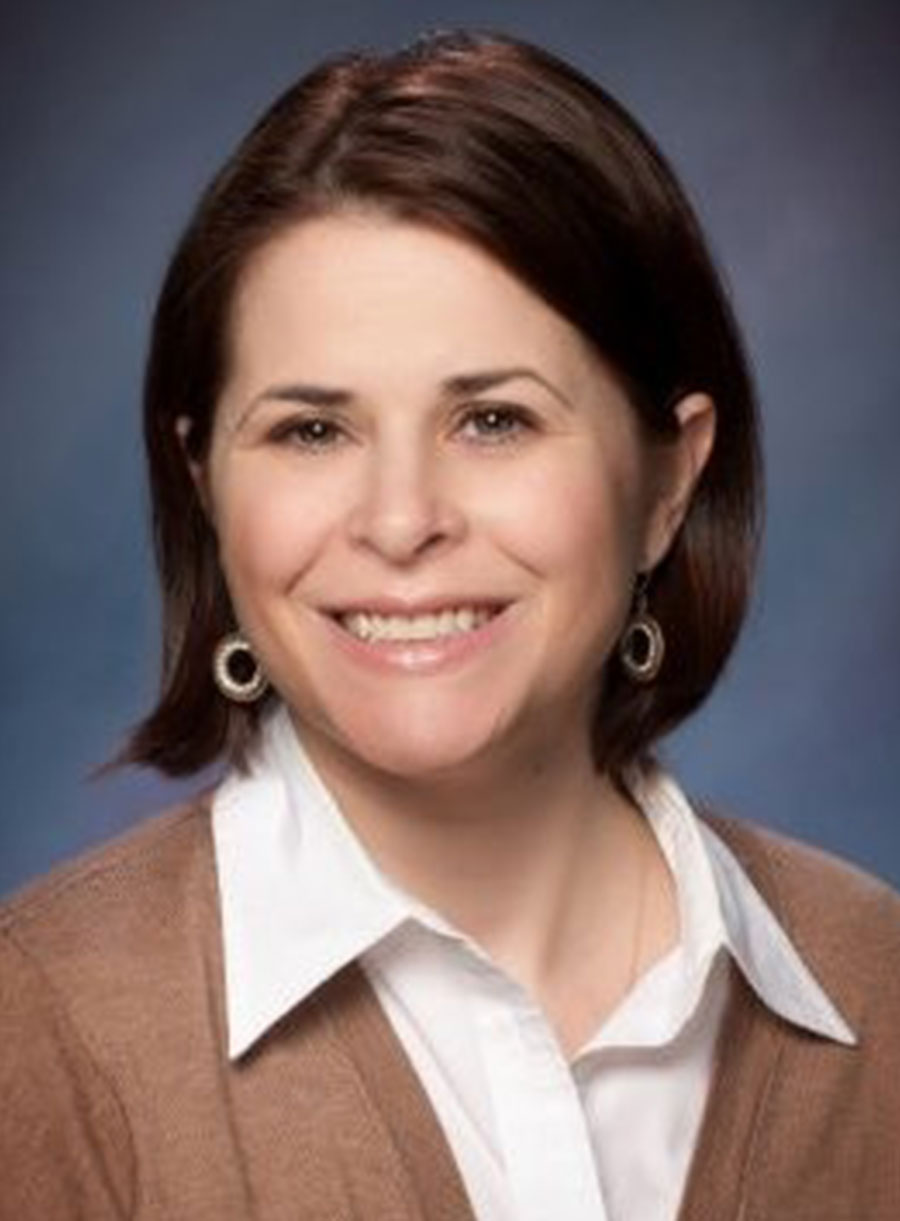
■ in memoriam

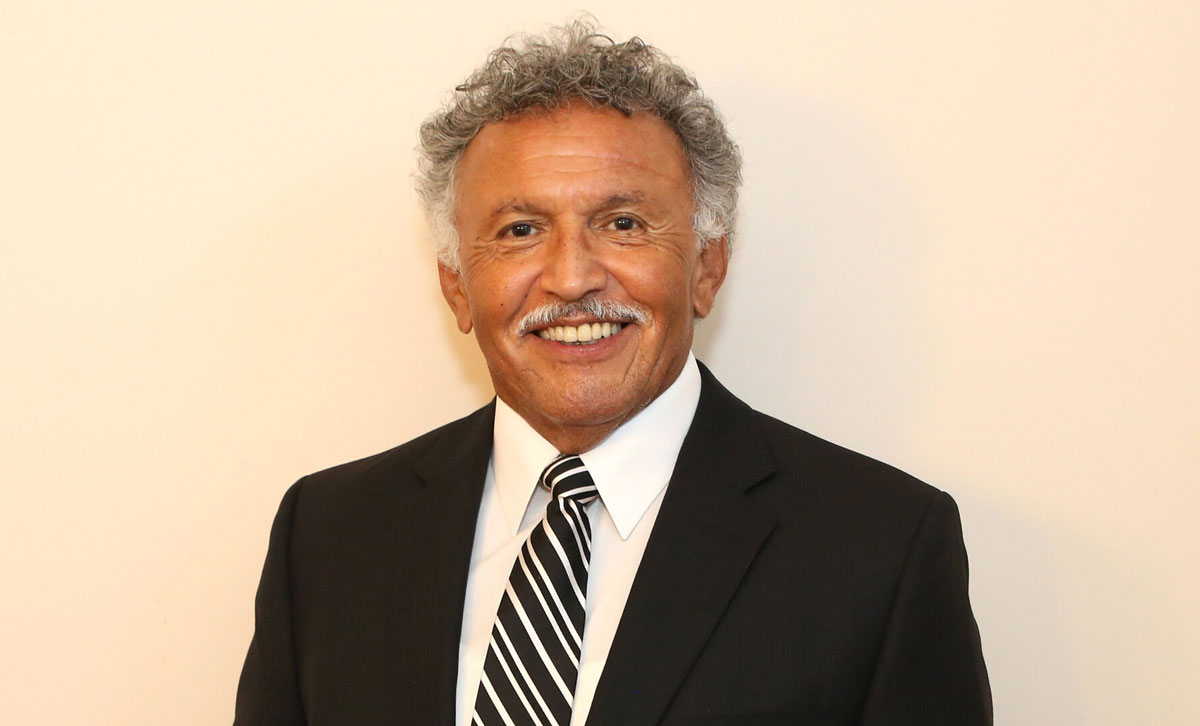
Hon. James Roy Bean III ’73
Timothy J. Bott ’72
Hon. Patrick F. Cherry ’69
Jerome E. Crawford ’79
Louie C. Elliott ’56
Adele Maire Gagliardi ’00
Professor B.J. George Jr.
Roman Halanski ’50
Mort Harris, WSU philanthropist
Richard D. Haskins ’66
Barry Franklin Keller ’77
David H. Key Jr. ’53
Joseph J. McDonnell ’80
Alfred Millstein ’78
Jon R. Muth ’71
Donald L. Petrulis ’68
Peter Lee Plummer, Jr. ’75
Hon. Norene S. Redmond ’90
Linda Schwarb ’75
Cliff Woodards II ’01
Scholarship Certificates
Brandon S. Corcoran
Francesca M. Cusumano
Alec Michael D’Annunzio
Jordan Marie Ewald
Parker Jacob Feldman
Christine M. Gonyea
Erika J. Hauff
Falynn E. Koppy
Alexander D. Masson
Patrick J. Masterson
May Naphade
Ki Lee Shannon O’Brien
Sarah Anna Schade
Lauren Shinaberry
Anna C. Transit
Hannah Grates Zaskiewicz
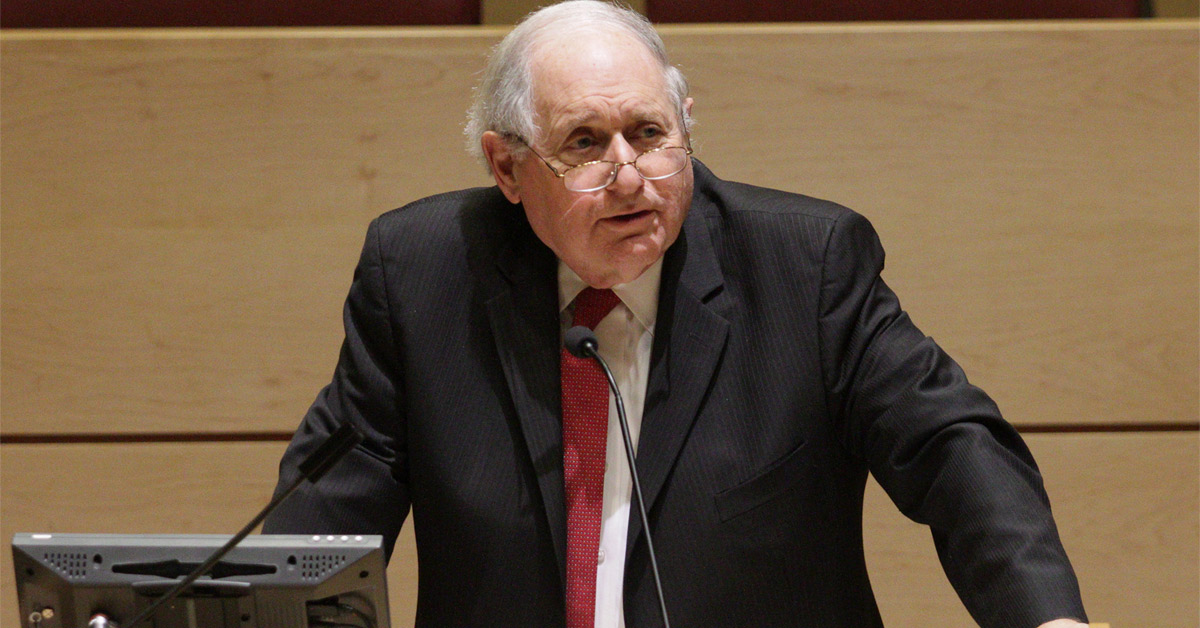
Wayne Law remembers
Throughout his 36-year Senate career (Jan. 3, 1979, to Jan. 3, 2015), Levin earned respect from colleagues on both sides of the political aisle for his integrity, resourcefulness, diligence and ability to build consensus. A fighter for economic fairness and a powerful voice for equality and justice, he became one of the country’s most respected leaders on national security.
Levin’s influence and dedication advanced the legislative process and changed the way we govern today. In 2015, the Levin Center at Wayne Law was established to carry out his legislative oversight legacy and vision.
A lifelong Detroiter, Levin was born in Detroit on June 28, 1934, and graduated from Central High School in 1952. He earned his bachelor’s from Swarthmore College and J.D. from Harvard Law School. In 1961, he married Barbara Halpern, a 1977 graduate of Wayne Law. Together, they raised three daughters — Kate, Laura and Erica — and sought to spend as much time as possible with their six grandchildren.
